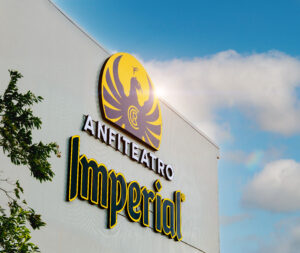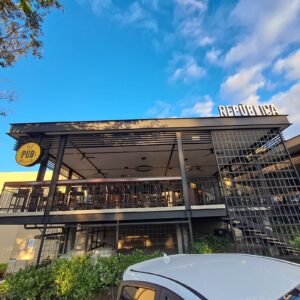- FIFCO is the first private company to form part of this corridor, strengthening ecological connectivity in the Greater Metropolitan Area
- The company reaffirms its commitment to urban biodiversity and public-private partnerships under the Expansive Sustainability approach
The Cubujuquí Interurban Biological Corridor (CBI-Cubujuquí) celebrates its first anniversary since its creation, consolidating itself as a model of conservation and ecological restoration in urban environments. FIFCO celebrates this milestone as the first private company to be part of the corridor, reaffirming its leadership in sustainability and its commitment to public-private partnerships that promote Expansive Sustainability, a vision that seeks to scale environmental, social, and governance impact beyond its operations.
CBI-Cubujuquí covers more than 230 km², benefiting more than 386,000 people and protecting a unique biodiversity with more than 300 bird species, 45 mammals, 25 amphibians, and more than 1,000 plant species. Among its emblematic species is the Holdridge’s toad, an amphibian endemic to Costa Rica and critically endangered, whose presence in the corridor symbolizes the resilience of urban ecosystems.
Through the Urban Eco Connection (ECU) Project, FIFCO has converted the green areas of its production plants into urban climate refuges within the CBI-Cubujuquí. These spaces, developed in partnership with the National University (UNA), serve as points of ecological connectivity and are home to more than 100 species of fauna, including birds, bats, reptiles, and amphibians. The initiative demonstrates that it is possible to combine industrial production with environmental regeneration, strengthening the ecological and social resilience of surrounding communities.
“Biodiversity requires the joint commitment of communities, institutions, and companies. CBI-Cubujuquí is a clear example of our philosophy of Expansive Sustainability, of how partnerships between the public, academic, and private sectors can transform the urban landscape and generate tangible benefits for nature and people,” said Maria Pía Robles, FIFCO’s Director of Corporate Relations.
As part of the corridor’s educational pillar, FIFCO promotes environmental education and awareness programs, corporate volunteering, and citizen science activities, encouraging the participation of its employees and neighboring communities in species restoration and monitoring processes. These actions are part of the company’s environmental strategy and its sustainability goals for 2027, which include restoring ecosystems, protecting marine and terrestrial areas, and promoting ecological connectivity.
During 2025, FIFCO has actively participated in workshops to update the National Biodiversity Strategy, led by the National System of Conservation Areas (SINAC), as part of the process of aligning the country with the Kunming-Montreal Global Biodiversity Framework. In doing so, the company reaffirms its commitment to global conservation goals and its contribution from the business sector.
“Costa Rica is updating its National Biodiversity Strategy to align with the Kunming-Montreal Global Framework, and at FIFCO we are joining this participatory process. We restore ecosystems, protect marine and terrestrial areas, and promote ecological connectivity,” said Robles.
On this anniversary, FIFCO extends an invitation to other companies and institutions to join initiatives such as CBI-Cubujuquí, which promote the harmonious coexistence of development and nature. From its Expansive Sustainability approach, the company promotes collaboration as a way to achieve regenerative and resilient solutions that benefit both people and the planet. Learn more about FIFCO’s biodiversity preservation strategy in the 2024 Integrated Report, starting on page 158.


